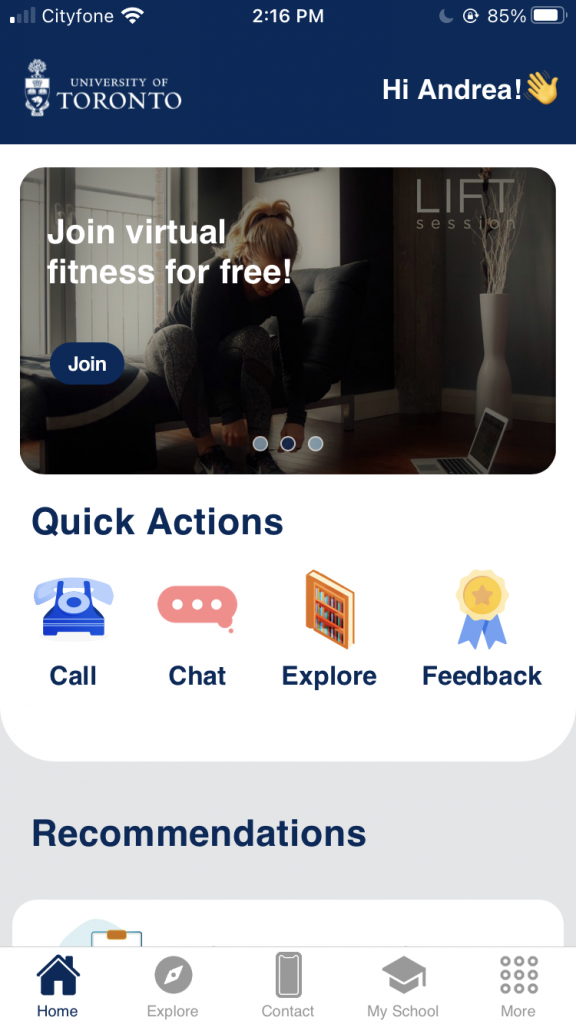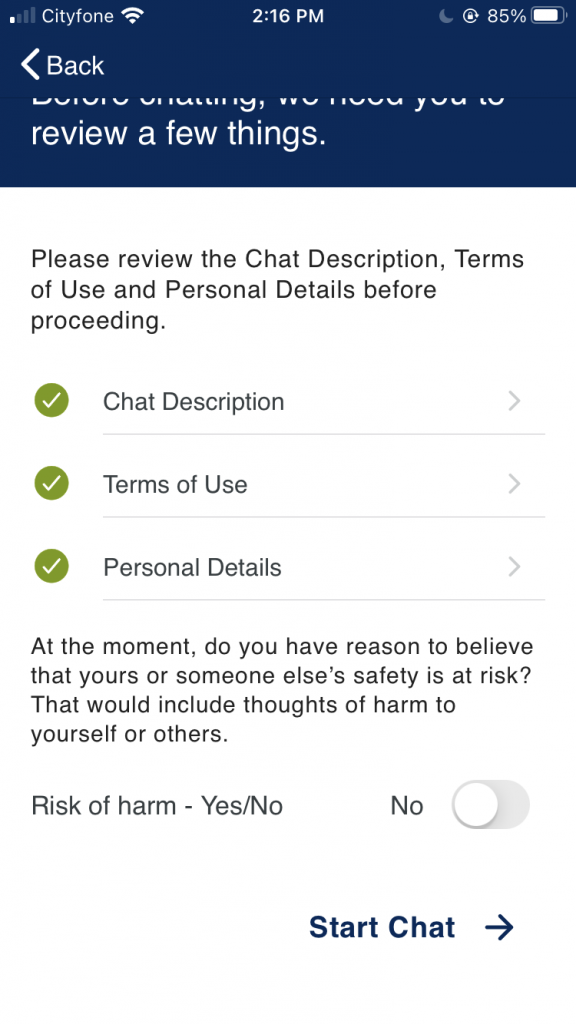Photo credit to Camille Simkin.
Whether it’s U of T Telus Health Student Support (formerly U of T My SSP), Good2Talk, or even Kid’s Help Phone, it’s one of those things we’re made aware of but we seldom hear about people actually using these services. I mean, how do you bring that up? Even when these mental health chat and talk services stress that they’re not for crisis and to call 911 if an individual is in one, I feel that we tend to associate these apps with just that. For me, when I’ve wanted to ask people if they’ve tried U of T Telus Health Student Support it feels like I’m making an assumption about their mental health just by bringing it up.

The truth is everyone needs someone to talk to. No one needs to feel ashamed for using these apps. Sometimes it’s the middle of the night and you can’t reach a friend. Maybe you’re not ready to talk about something to someone close to you and you want an unbiased opinion. That’s why these services are here.
And if you want to know what it’s like to use one of them, I’ve used Telus Health Student Support a couple of times.
The first time I used Telus Health Student Support was last year. I was in a dark place where I ended up speaking to a counsellor. Another time I used it was more recently where I talked about experiencing guilt for not completing an assignment on time because of mental health. Both times I’ve had meaningful conversations and they were there as long as I needed.


What I like about Telus Health Student Support is that it’s a 24-hour service that provides support in multiple languages. You have the option of speaking to a counsellor or a chat/phone agent. So did I get life-changing advice from one session? No. Was the support what I needed for that moment of time? Absolutely. What I learned from using Telus Health Student Support is that its support serves as a short-term solution. Their counsellors and agents are not going to give you in-depth advice like a mental health professional you see long-term. They function best as a platform where you need someone to talk to in the moment no matter what the subject is.
One thing to expect about using a service like this is that it can require some patience. Many people use Telus Health Student Support at the same time so agents and counsellors aren’t always immediately available – that’s why they emphasize that when in crisis, call 911. For me, it can feel frustrating that I have to wait to talk about a pressing issue but it ends up being worthwhile.
After using Telus Health Student Support when I needed sudden support, I felt more clarity after our conversation. Anxiety tends to take one thing and maximize it to a catastrophic worry and talking through that worry has helped me to rationalize it.
Ultimately, Telus Health Student Support is a great resource when you can’t access a healthcare provider immediately. When going into this app, it boils down to mindset. They may not give highly compelling advice or solve your worries but it’s really about what you can take from their advice and the act of seeking help. When I reached out because of the guilt I felt over an assignment, I felt a sense of strength because I was able to get myself to reach out about something I felt ashamed of and I was glad I did it.
For more information about Telus Health Student Support see the link here: https://mentalhealth.utoronto.ca/telus-health-student-support/

0 comments on “My Experience With Mental Health Apps”